Are lemons fruits or vegetables? It’s a question that might come up while you’re slicing one to add a zesty touch to your favorite dish. The answer is more interesting than you might think.
Lemons are indeed fruits. They develop from the flower’s ovary and contain seeds, fitting the botanical definition of a fruit. But that’s not all. Lemons also have unique uses and health benefits that make them a kitchen essential.
Curious about how lemons can improve your meals, clean your home, and boost your health? Keep reading to discover the surprising facts and practical tips that make lemons so versatile.
- Related article: Comparing Fruits and Vegetables
5 Key Takeaways on Is Lemon a Fruit or Vegetable
- Lemons are fruits because they grow from the flower’s ovary and have seeds. They grow on trees and come from the flower’s ovary.
- Botanically, lemons are a type of berry called a hesperidium. They have three layers: the outer skin (exocarp), the fleshy middle (mesocarp), and the inner part with seeds (endocarp).
- Lemons are not natural fruits. They are man-made hybrids created through selective breeding. They are a mix of citron and bitter orange.
- Lemons are versatile in the kitchen and beyond. They flavor dishes, make lemonade, and clean and deodorize household items.
- Lemons are rich in vitamin C and other nutrients. They support heart health, aid digestion, and can be used in various home remedies and personal care routines.
Is Lemon a Fruit or Vegetable?
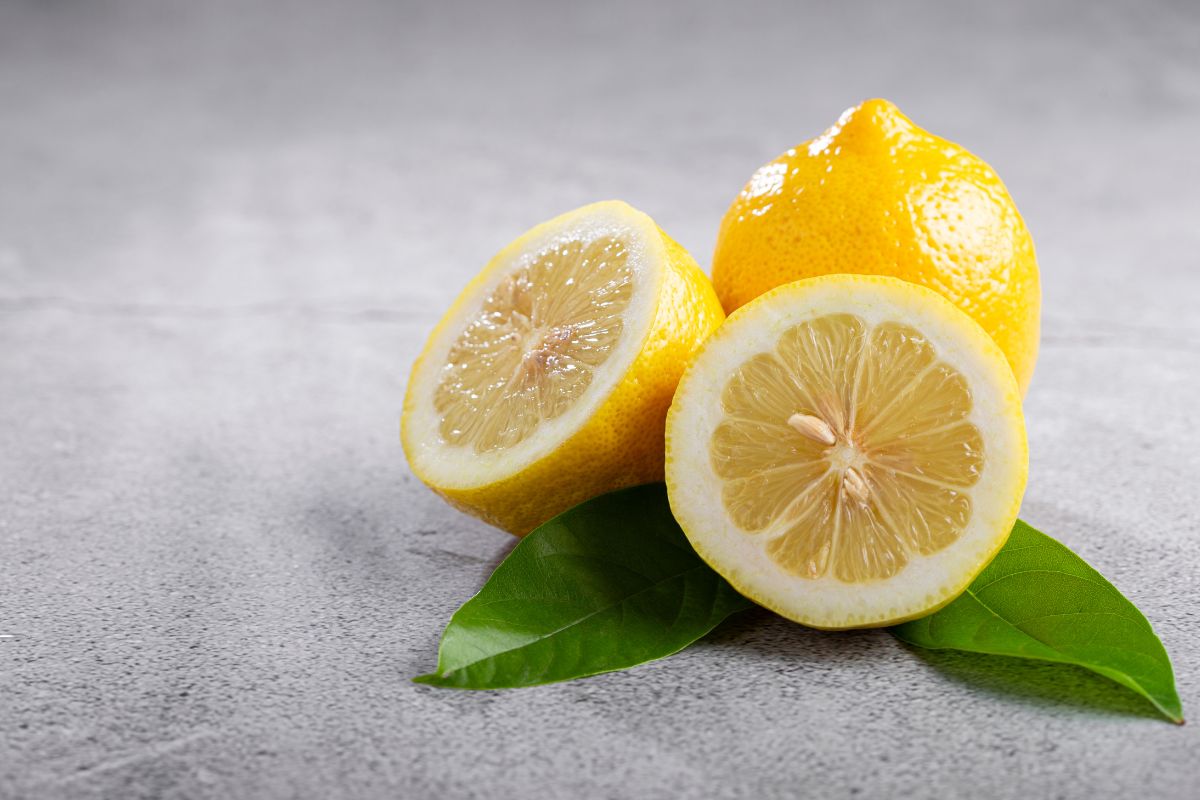
A plant part is a fruit if it bears seeds and comes from a flowering plant’s ovary. Vegetables include all other edible parts like stalks, stems, leaves, tubers, and roots. By these definitions, lemons are fruits. Let’s explore deeper.
Why Are Lemons Considered Fruits?
Lemons grow on trees. They develop from the flower’s ovary, making them fruits. There are many varieties of lemons. All of them have seeds inside that may eventually grow into new lemon trees.
It takes about two to five years for a lemon seed to mature into a single lemon tree. When mature, the tree produces fragrant blooms.
Lemons are often used in savory dishes and drinks. Despite this being a ‘vegetable’ definition, lemons are still fruits because they develop from the flower’s ovary and contain seeds.
You might wonder if lemons are berries — they are! Lemons start as small green berries and then turn yellow as they ripen.
Why Are Lemons Classified as Berries?
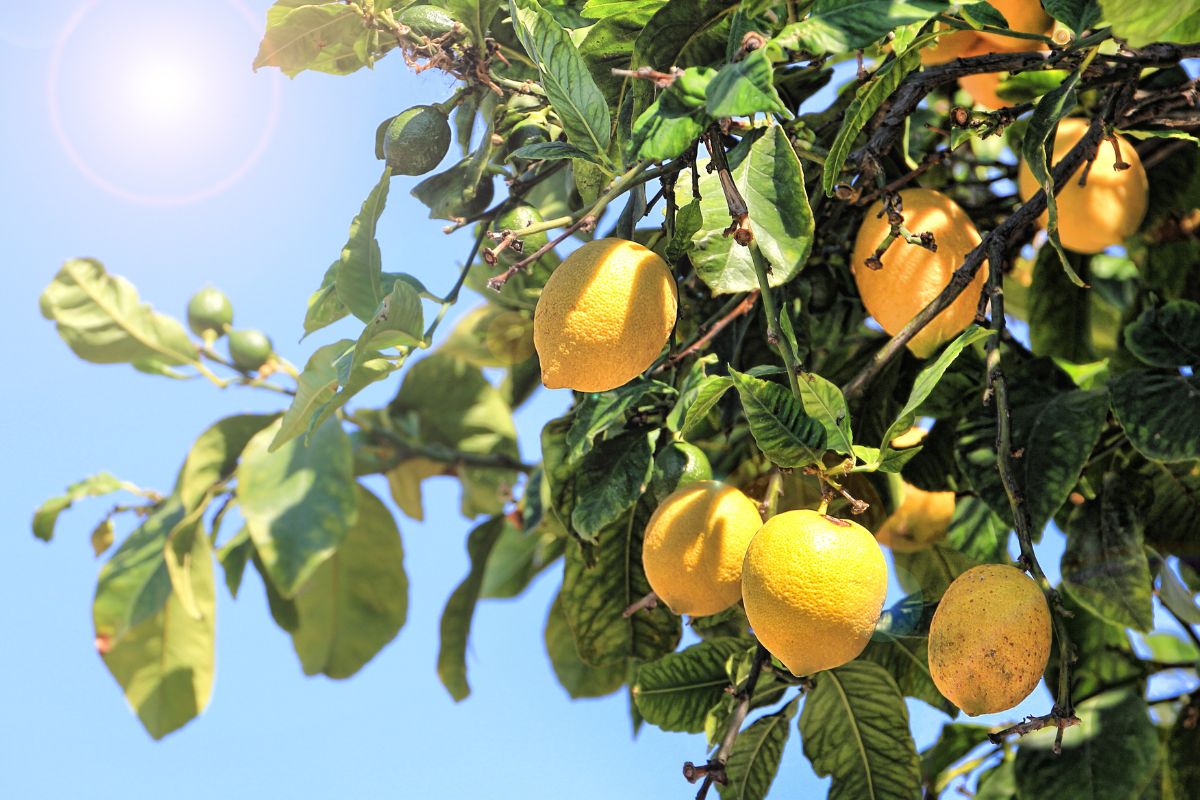
Yes, lemons are berries. Botanically, a berry has three layers:
- Exocarp – The outer skin
- Mesocarp – The fleshy middle
- Endocarp – The inner part with seeds
Lemons have these layers. The peel is the exocarp. The white pith under the peel is the mesocarp. The juicy inside with seeds is the endocarp.
For a fruit to be a berry, it must have two or more seeds and come from a single flower with one ovary. Lemons meet these criteria.
Lemons are part of the citrus family (genus Citrus). They are a type of berry called a hesperidium. This berry has a thick, leathery rind and a juicy inside.
While lemons don’t fit the common idea of a berry (small, soft, juicy), they are true berries botanically. A lemon is a citrus fruit that develops from a single flower’s ovary and has a fleshy, juicy interior with multiple seeds.
Is Lemon a Natural Fruit?
Lemons are not natural fruits. They are a man-made hybrid created through selective breeding. The lemon tree (Citrus × limon) is a mix of two other citrus fruits: the citron and the bitter orange. Citrons come from Southeast Asia. Bitter oranges are a hybrid of pomelos and mandarins.
Over centuries, natural hybridization and human cross-breeding led to the lemon we know today. The exact origins are unclear. Lemons were likely first cultivated in Assam, India, northern Myanmar, or southern China.
Lemons are botanically berries. They do not grow naturally in the wild. Every lemon today is a result of cultivation. They did not evolve naturally.
- Read more: Are Lemons Man-Made?
Different Ways to Use Lemons
When life hands you lemons, you can do a lot more than make lemonade. This vibrant yellow fruit is a rich source of vitamin C. It provides 100% of your daily vitamin C needs. Lemons also help reduce heart disease risk and burn fat. And that’s just the beginning.
Lemons bring a zesty flavor to fish dishes and a refreshing twist to gin and tonics. They make summery lemonade and tasty cakes, pies, and ice cream. But their uses go beyond food and vitamins.
Lemons are more than just a source of vitamin C. They are versatile and useful in many ways. Try these tips to make the most of this sour fruit.
Use Lemon as a Cleaner
If you want a natural cleaner for your home, try using lemons. They are a great alternative to chemical products. Why?
- Lemons are natural and eco-friendly
- Lemons have antibacterial properties
- Lemons provide a fresh scent
- Lemons can remove stains and limescale
- Lemons have versatile cleaning uses
Use Lemons to Clean Stainless Steel

You can clean stainless steel using salt and half a lemon. It works for sinks and pots and keeps drains fresh.
Mix juice from 2 lemons with 4-5 tablespoons of hot water. Dip a soft cloth in the solution and wipe the stainless steel with the grain. Dry with a paper towel.
For tougher stains, try these steps:
- Sprinkle baking soda on the surface then scrub with the pulpy part of a lemon peel.
- Let a lemon juice and water solution sit on the surface for an hour before boiling to dissolve limescale.
Use Lemons to Clean Your Microwave
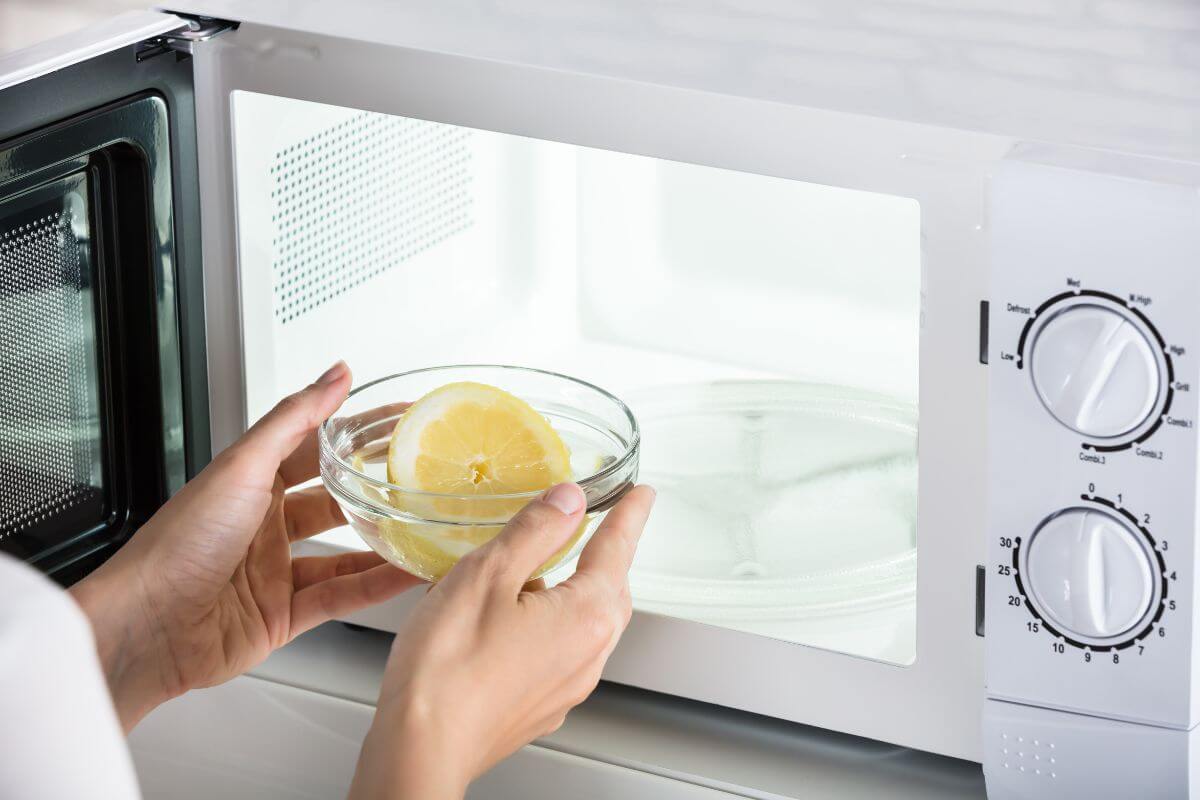
Got gunk in your microwave? Here’s a quick fix. Microwave a bowl of water with lemon juice and lemon peels for 3 minutes. Let it sit for another 5 minutes before opening the door. This will loosen up the gunk so you can easily sponge it away.
Here’s how to clean a microwave with lemon:
- Prepare the Lemon-Water Solution – Add 1 cup of water and 2-3 teaspoons of fresh lemon juice (or 1 sliced lemon) to a microwave-safe bowl.
- Steam the Microwave – Place the bowl in the microwave and run it for 5 minutes. Let it sit with the door closed for another 15 minutes. The steam will loosen grime and food residue.
- Wipe Down the Interior – Carefully remove the hot bowl. Use a microfiber cloth to wipe down all the interior surfaces, including the rotating plate. The lemon juice and steam should make it easy to remove stuck-on food and grease.
- Clean the Exterior – Use the remaining lemon-water solution to clean the exterior, including the door and gasket. This helps remove any lingering odors or stains.
- Finishing Touches – For tough stains, use a baking soda paste and a scraper. Dry the microwave with a clean microfiber cloth. Finally, wipe down all surfaces with a natural surface cleaner.
Use Lemons to Clean Plastic Containers
Rub half a lemon on your plastic food containers to deodorize them.
Mixing lemon juice with salt makes a great scrub. This combo can clean and restore plastic. The salt acts as a mild abrasive to lift stains while the lemon juice cleans. You can use this scrub on plastic containers, utensils, and cutting boards.
But be careful. The citric acid in lemon juice can damage some plastics over time. Some have said that lemon juice can cloud a plastic fridge shelf. So, test lemon juice on a small, hidden area first to make sure it doesn’t harm the plastic.
Use Lemons to Clean the Bathroom
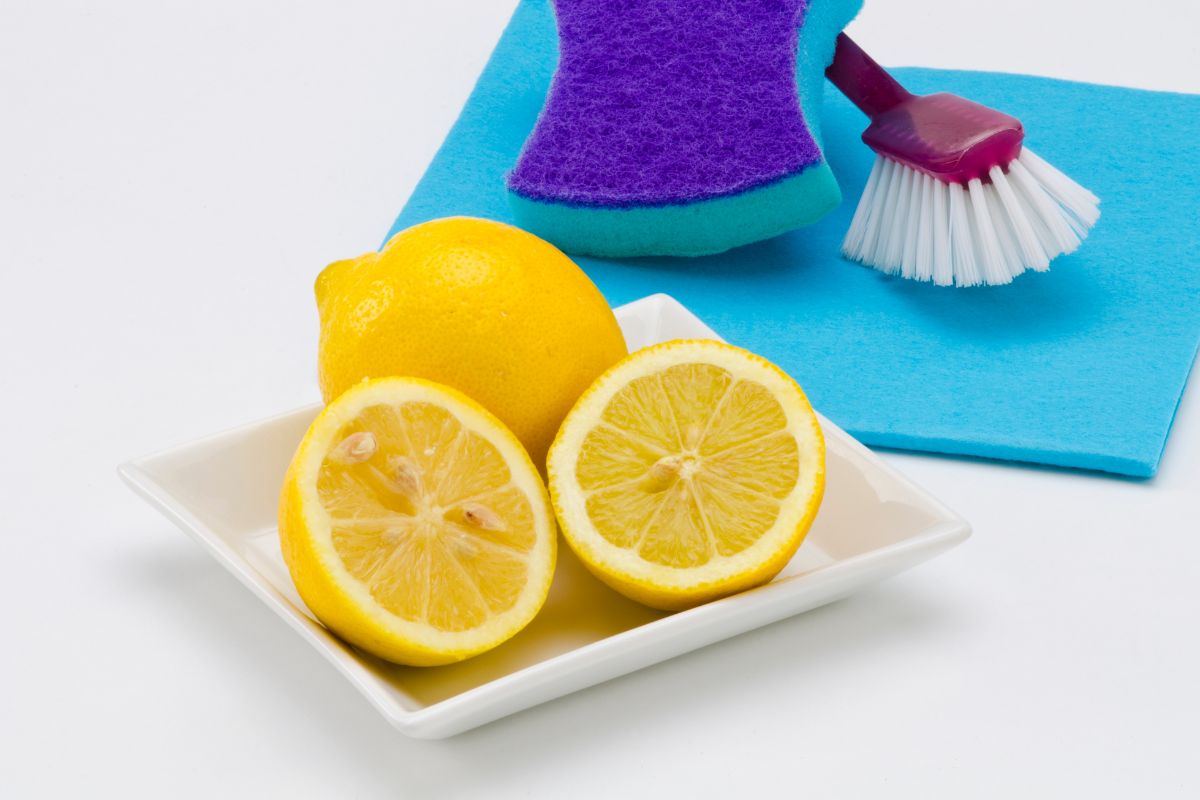
You can clean bathroom fittings, chrome fixtures, and tiles using a mix of ¼ cup baking powder and lemon juice. Make a paste and apply it with a toothbrush. Mold and mildew will vanish.
For sinks and counters, mix lemon juice and hot water. Use juice from 2 lemons and 4-5 tablespoons of hot water. Dip a soft cloth into this solution and wipe the surfaces. Follow the grain of any stainless steel. Dry the surfaces with a paper towel.
For tougher stains or buildup, sprinkle baking soda on the surface. Scrub with the pulpy part of a lemon peel. Let a lemon juice and water solution sit on the surface for an hour before boiling. This helps dissolve limescale.
To clean toilets, spray the seat, rim, and bottom with a lemon juice and water solution. Pour a teaspoon of lemon juice into the toilet bowl. Swish with a brush and let it sit for 10 minutes. Wipe down the entire toilet with a damp sponge.
Use Lemons in the Kitchen
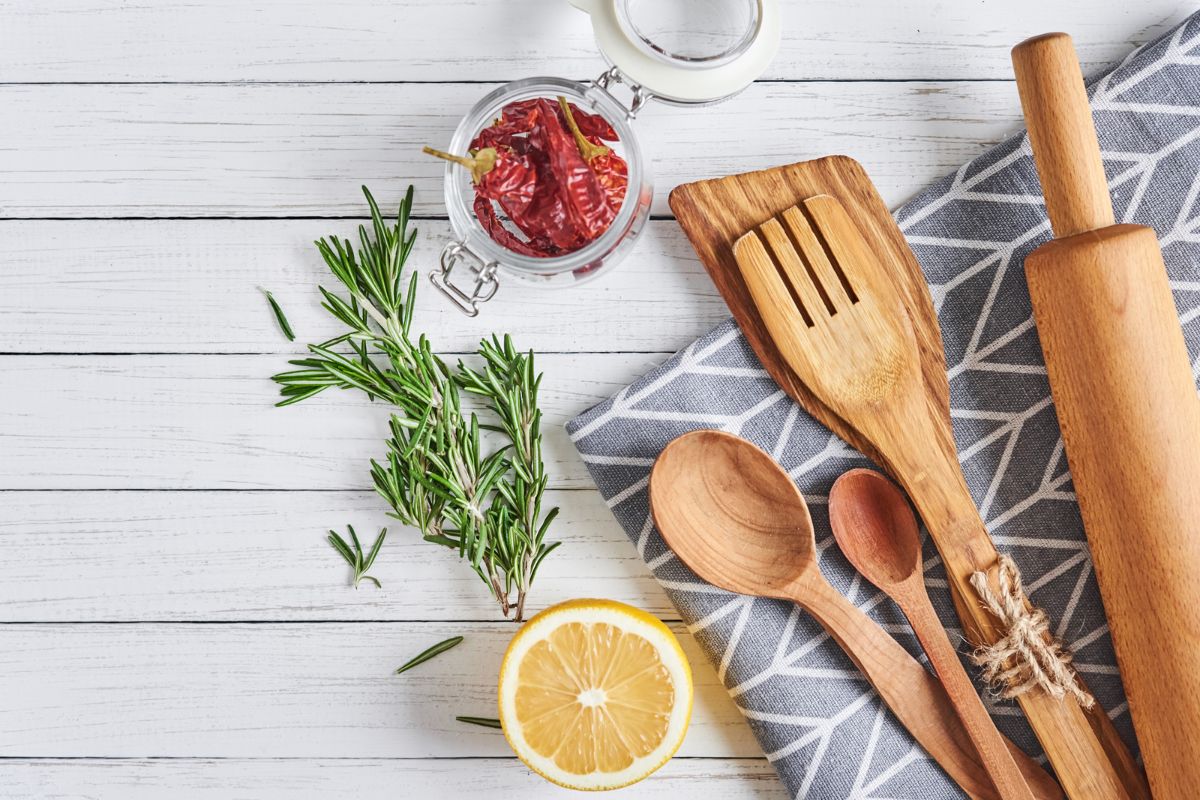
Aside from being a key ingredient in many of our favorite dishes, lemons have other great uses in the kitchen. I’ll discuss some of them in this section.
Use Lemons to Keep Vegetables From Turning Brown
Want to keep your vegetables from turning brown? Here’s how lemons can help.
To prepare a lemon-water solution, mix the juice of 1-2 lemons with 1 cup of water. The acidity in lemon juice stops vegetables from browning when they touch air.
If you have sliced or cut vegetables, soak them in the lemon-water solution for 5-10 minutes before cooking or serving. This keeps them looking fresh. For whole vegetables, spray the lemon-water mixture on the surface and let it sit for a minute before rinsing off. The lemon juice forms a barrier that blocks oxygen from reaching the vegetable cells and causing browning.
After soaking or spraying, rinse the vegetables under cold running water to remove any lemon residue. Pat them dry with paper towels or a clean cloth because moisture can cause spoilage. Store the treated vegetables in an airtight container in the refrigerator until you’re ready to use them.
Use Lemons to Clean Chopping Boards
To clean a wooden chopping board using lemons, follow these steps:
- First, sprinkle coarse salt over the board, focusing on stained areas.
- Then cut a lemon in half and use the cut side to scour the salted surface.
- Apply firm pressure and use circular motions to work the salt and lemon juice into the wood. Let the mixture sit for 10-15 minutes to lift stains and odors.
- Rinse the board with warm water and scrub with a sponge or brush to remove any residue.
- Finally, dry the board thoroughly with a clean cloth or paper towels.
Use Lemons to Revive Wilting Lettuce
If your lettuce looks wilted, you can revive it with lemon. Here’s how:
1. Fill a bowl with cold water. Add a few drops of lemon juice or vinegar.
2. Submerge the wilted lettuce in the lemon-water mix for 30-60 minutes.
3. Drain the lettuce. Rinse off any lemon or vinegar. Dry it well using a salad spinner or paper towel.
This method can bring your lettuce back to life.
Use Lemons to Clean Your Cheese Grater
Cleaning a cheese grater can be tricky. Here’s a simple way to make it sparkle using a lemon:
1. Cut a lemon in half.
2. Rub the pulp side of the lemon over the grater with firm pressure.
3. The lemon juice’s acidity breaks down stuck-on cheese and grease.
4. Let the lemon juice sit for a few minutes.
5. Rinse the grater under hot water and scrub with the lemon half.
This method makes cleaning easy and leaves your grater shining.
Use Lemons to Refresh Your Hands
If you’ve been working with onions or garlic, your hands will smell. Rub your hands with a lemon slice to get rid of the odor.
Here’s how to make a lemon hand scrub:
- Cut a lemon in half.
- Sprinkle granulated sugar or sea salt on one half.
- Rub the lemon half with sugar or salt over your hands, focusing on nails and cuticles.
- The lemon juice’s acidity and the sugar or salt’s abrasiveness will exfoliate your skin and remove dirt, grease, and odors.
- Rinse your hands with warm water to remove lemon and sugar residue.
- Pat your hands dry with a clean towel.
For a lemon hand soak, follow these steps:
- Squeeze the juice of 1-2 lemons into a bowl of warm water.
- Soak your hands in the lemon water for 5-10 minutes.
- The lemon juice will break down grime and odors.
- While soaking, scrub your hands with a soft brush or washcloth.
- Rinse your hands with clean water and moisturize if needed.
Use Lemons to Make Flavored Ice Cubes
Imagine freezing lemon juice, fruit pieces, or slices in ice cube trays or muffin trays. They add attractive cubes to punches, water, lemonade, or drinks for a twist. You can add other fruit pieces and mint if the flavor tweaks your taste buds.
Making Lemon Ice Cubes:
- Wash and zest 2-3 lemons to get thin strips of lemon peel.
- Squeeze the juice from the lemons, about 2-3 tablespoons of juice.
- Place a piece of lemon peel in each compartment of an ice cube tray.
- Pour the lemon juice over the peel, filling each compartment about 2/3 full.
- Top off the cubes with water, leaving a small gap at the top for expansion.
- Freeze the tray for 4-6 hours until the cubes are fully frozen.
- Pop the lemon ice cubes out of the tray and store them in an airtight freezer bag.
Using Lemon Ice Cubes:
- Add the lemon cubes to water, iced tea, lemonade, or cocktails to infuse them with fresh lemon flavor as the ice melts.
- For extra flavor, you can also add a small sprig of fresh mint to each ice cube compartment before freezing.
The lemon zest and juice will give the ice cubes a bright, citrusy taste that will liven up any cold beverage.
Use Lemons for Health and Personal Care
Lemons pack a punch when it comes to your health. These zesty fruits offer more than just a tangy flavor. They’re an excellent source of goodness for your body.
Want to know how lemons can boost your well-being? Here’s a quick look at their amazing benefits:
- They support your heart health
- They’re loaded with vitamin C
- They aid in digestion
Lemons contain pantothenic acid. This nutrient helps keep your blood vessels in top shape. By doing so, it may lower your risk of heart disease and stroke.
But that’s not all! Lemons are rich in dietary fibers too. These fibers can help you feel full and support a healthy gut.
Have you ever tried adding lemon to your water? It’s a refreshing way to enjoy these benefits. Or you could squeeze some over your salad for a zesty kick.
Use Lemons as a Face Cleanser

Lemons aren’t just for lemonade. They can work wonders for your skin too! I’ve tried using lemon on my face and let me tell you, it’s refreshing. But you need to be careful.
Here’s how to use lemon safely on your face:
- Mix lemon juice with water or blend it with yogurt or honey
- Apply this mixture to damp skin and gently massage
- Start with once a day to see how your skin reacts
- Keep it away from your eyes and stop if your skin gets irritated
Lemon juice can hydrate your skin and fight bacteria. It’s like a natural cleanser. But it’s strong stuff. I learned that the hard way when I used it straight on my face. Ouch!
Remember, lemon juice is acidic. It might dry out your skin or cause irritation. If you have sensitive skin, be extra careful. Also, don’t use it before going out in the sun. It can make your skin more sensitive to sunlight.
Before you slather lemon all over your face, do a spot test. Put a tiny bit on a small area of your skin. If it doesn’t cause any problems, you’re good to go.
Use Lemon as a Foot Scrub
Ready to pamper your tired feet? Let’s whip up a zesty lemon foot scrub that’ll have you feeling refreshed in no time. Trust me, your feet will thank you!
Here’s what you’ll need:
- 1/2 cup lemon juice (1-2 lemons)
- 1 cup Epsom salt or sugar
- 1 cup coconut oil (or olive/almond oil)
- 2 tbsp honey (optional)
Mix everything in a bowl until it’s well combined. The lemon juice works as a natural exfoliant. The salt or sugar scrubs away dead skin. And the coconut oil? It’ll leave your feet feeling silky smooth.
Now, let’s put this scrub to work:
1. Soak your feet in warm water for 5-10 minutes.
2. Scoop out 1-2 tablespoons of the scrub.
3. Gently massage it into your feet. Focus on those rough spots!
4. Let it sit for 5-10 minutes. This gives the lemon juice time to work its magic.
5. Rinse off with warm water and pat dry.
6. Finish with a moisturizing foot cream.
You wouldn’t believe how soft my feet felt after trying this! It’s like walking on clouds. And the fresh lemon scent? It’s downright invigorating.
Drink Lemon Water
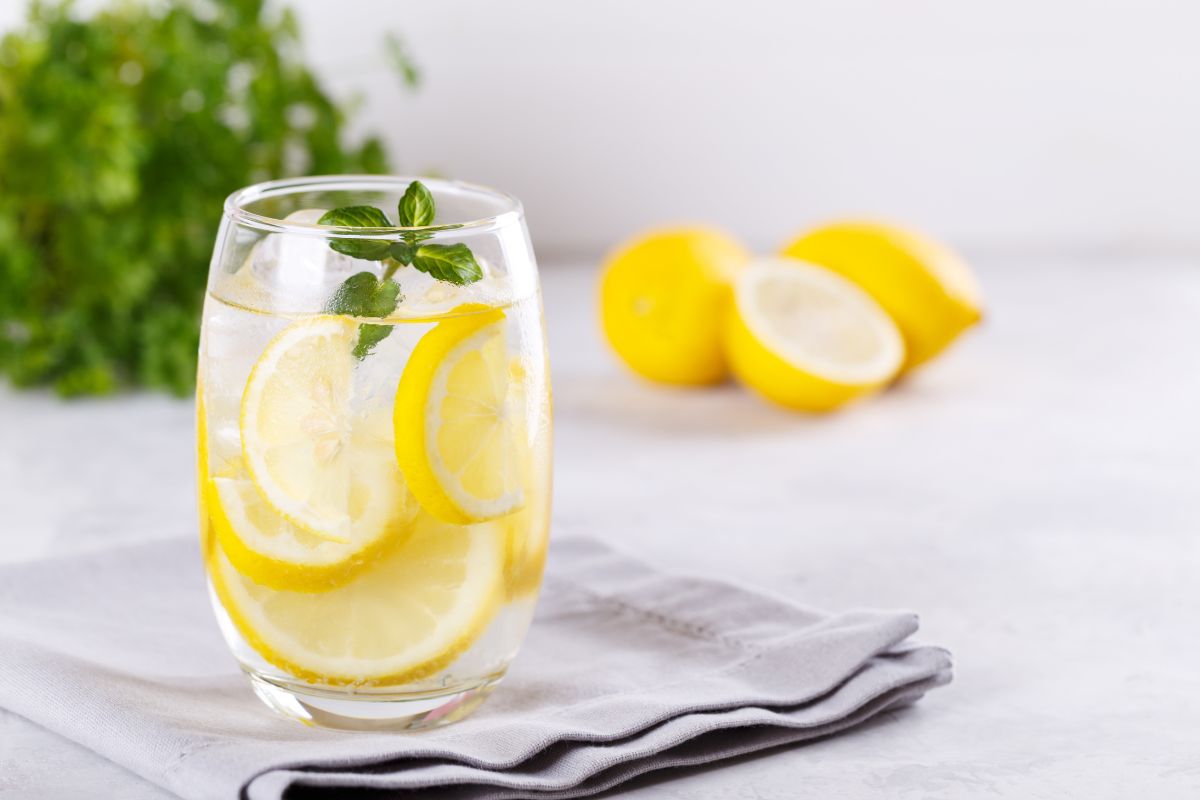
Lemon water is a game-changer for your health. I’ve been drinking it every morning for years, and I can’t start my day without it.
You’ll love how it flushes out toxins and gives your immune system a boost. Plus, it’s a natural way to curb hunger and reduce bloating. Did you know it can even help lower your blood pressure? That’s thanks to the potassium in lemons.
Let me show you how to make the perfect lemon water:
- Grab some fresh, organic lemons
- Give them a good wash
- Cut one in half and squeeze out the juice
- Mix the juice with 8 oz of water (use 1/2 to 1 whole lemon)
- Toss in some lemon slices for extra flavor
- If you like it sweet, add a touch of honey or stevia
- Stir it up and chill for 30 minutes
The sour flavor of lemons packs a punch of health benefits. It’s loaded with vitamin B6 and other nutrients. James Lind, a Scottish doctor, discovered that lemons could prevent scurvy in sailors. Today, we know lemons offer a wide variety of health perks.
Lemon is a Fruit Final Thoughts
Lemons pack a punch in more ways than one. These zesty little fruits are actually berries too. Who knew? But let’s not get hung up on labels. What matters is how awesome lemons are.
Want a quick health boost? Squeeze some lemon into your water. It’s refreshing and good for you. Feeling stressed? Rub a bit on your feet or face for a natural pick-me-up. And don’t even get me started on cooking with lemons. They’re a kitchen superstar.
I’ve used lemons for everything from brightening up a boring salad to cleaning my cutting board. They’re like the Swiss Army knife of the fruit world. Versatile doesn’t even begin to cover it. Have you tried freezing lemon juice in ice cube trays? It’s a game-changer for adding flavor to drinks or recipes in a snap.
What’s your favorite way to use lemons? I bet you’ve got some clever tricks up your sleeve too. These little yellow wonders never cease to amaze me with their endless possibilities.
You might be interested in these other looks at fruits and vegetables:

